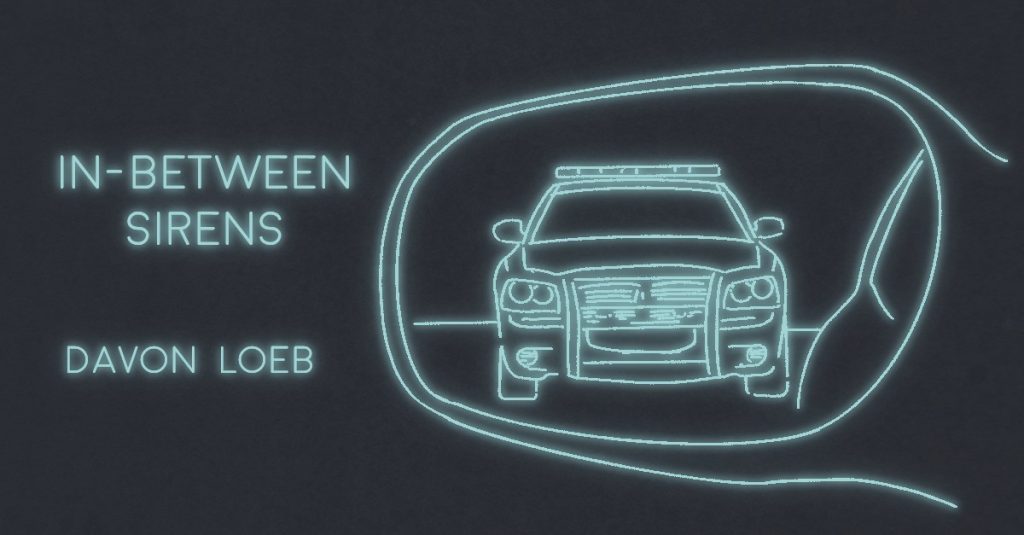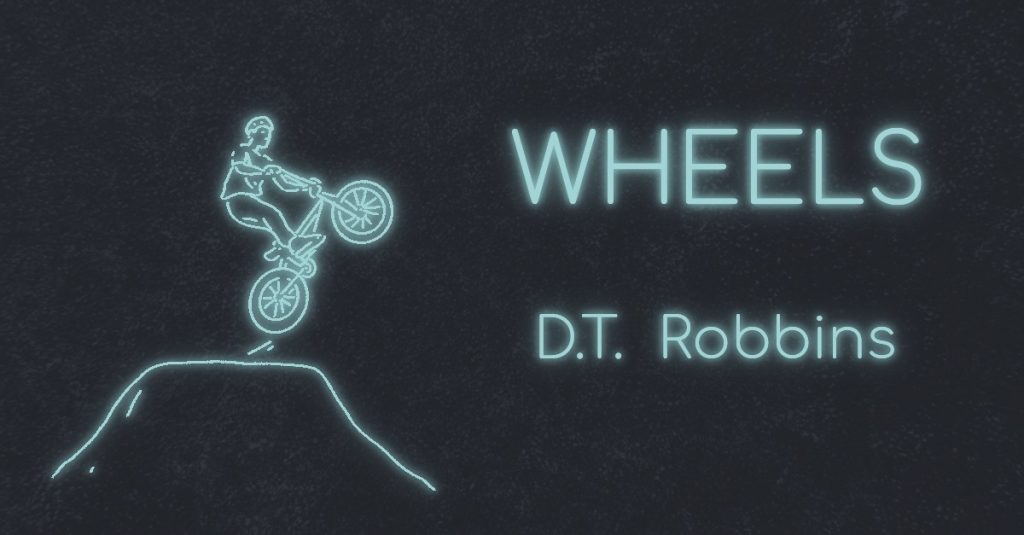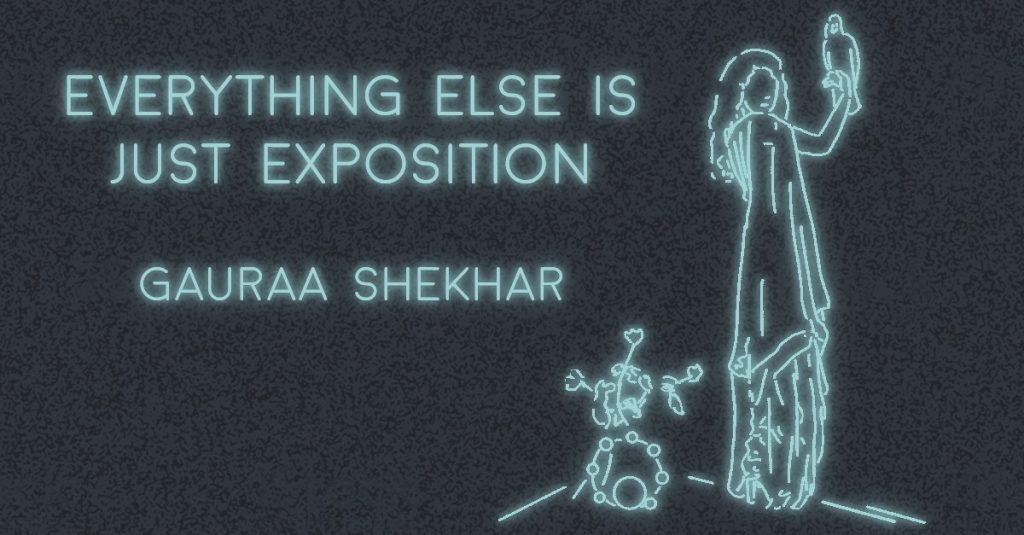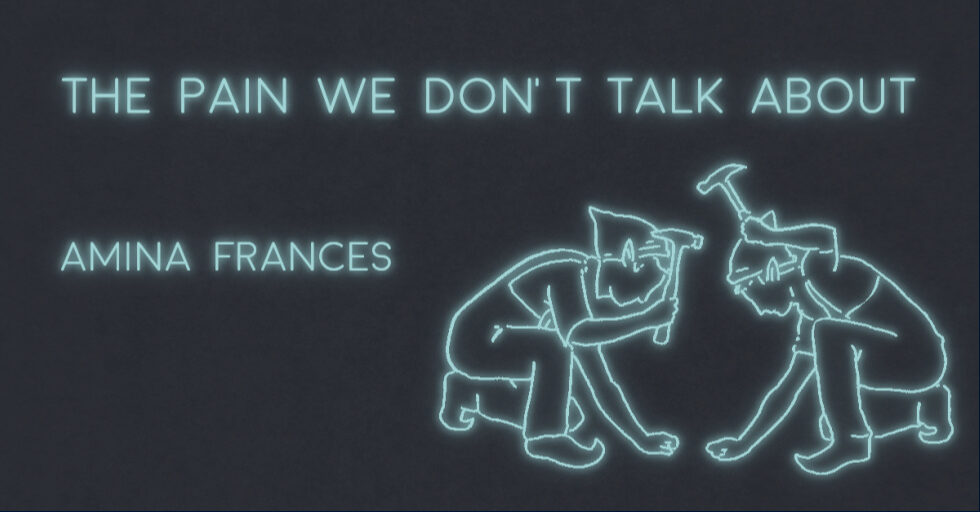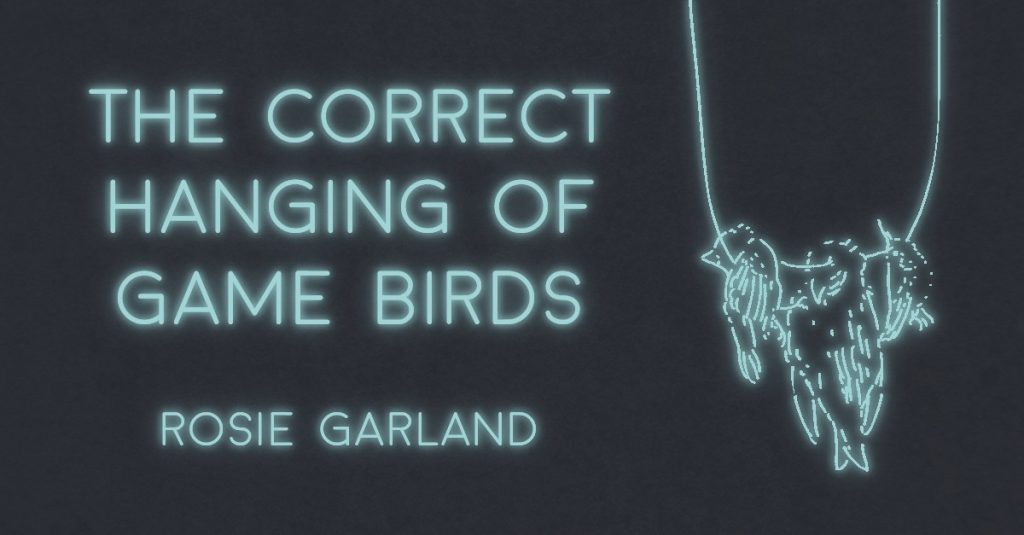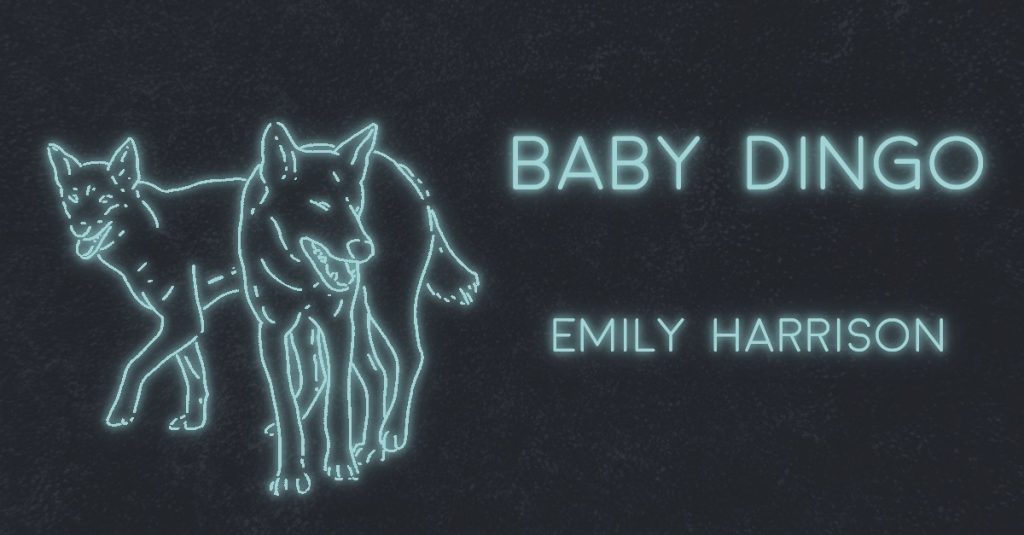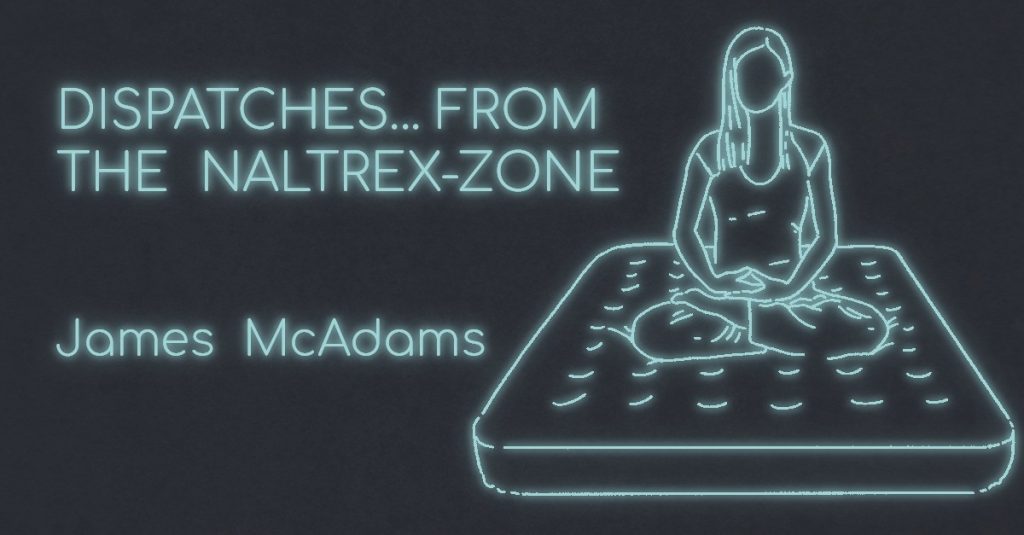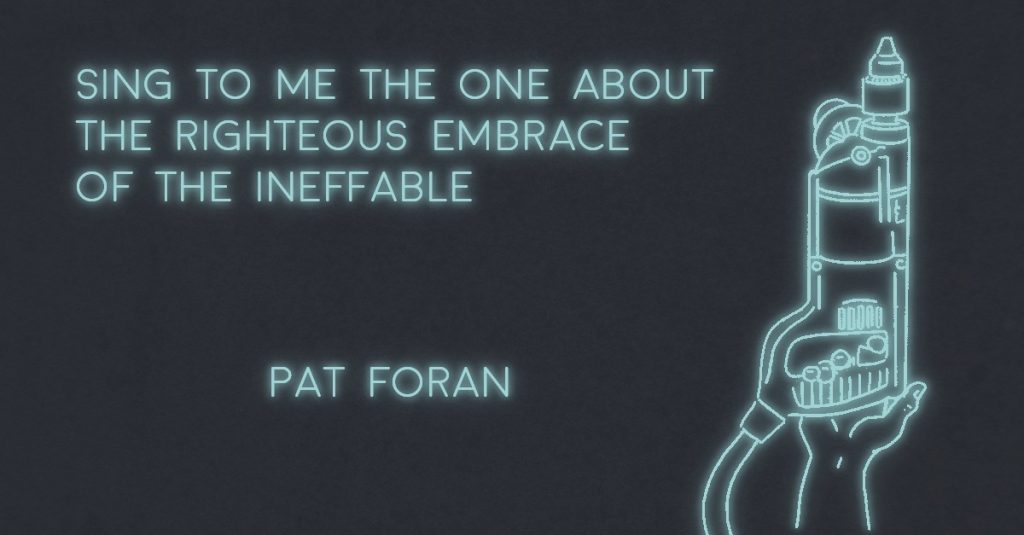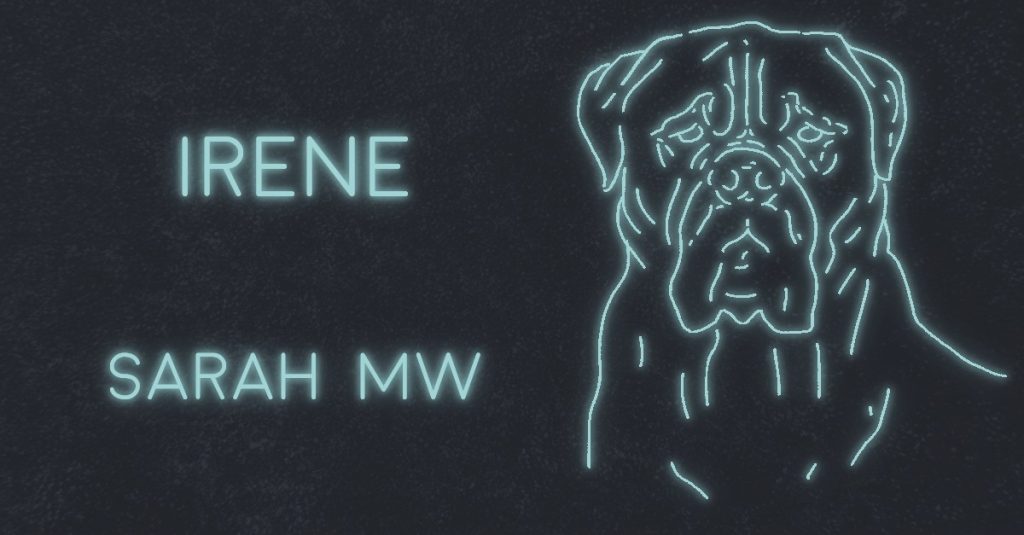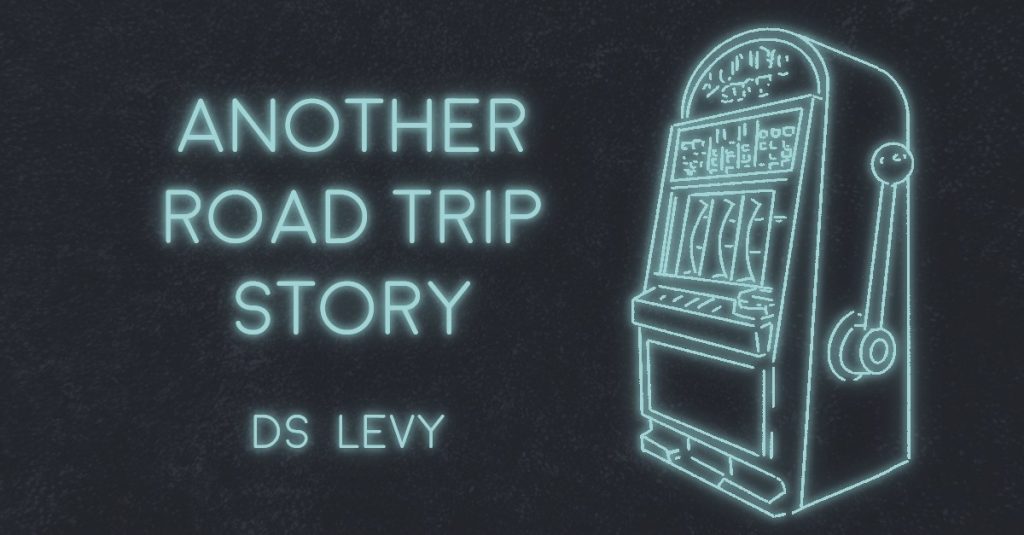“Fancy a bite of my banana, Miss?”
Teenage faces have a soft bluntness to them, a button-like quality as they wait to be chiseled out to their full adult contour. Joe’s face was the same, though unlike the others it sported a uniquely impressive beard, far from usual in a fifteen-year-old. He was grisly and monstrous; I heard he’d fucked his way through most of the pretty girls in year ten and eleven. Simpering, gum-chewing girls with clotted mascara and deep-set insecurities. He swung back, all too pleased with himself in his plastic chair, forcibly recumbent, legs wide like a broken easel.
I was a newly anointed high school teacher, fast baptized into the daily ritual of having my boundaries teased, stretched, and overstepped. I thought my greatest power might have been the ability to put on a show of indifference.
“No thanks, Joe.”
The indifference thing didn’t really work. They simply became more inventive in their provocations. An orange once, for instance, just missing the back of my head, hitting the whiteboard with a satisfying smack. Whittled down, waiting each day for the evening bus, I was a totally flimsy and broken thing. Better to wait for the very last one, or else be targeted again, naked by the shelterless stop, cat-called down from the top deck of the school bus.
Each day, disembarking the bus, entering that village, it seemed time at some point had been discontinued. Before starting there, I’d envisaged a forgivably backwards, warm, and well-meaning community: soft, thatched buildings, the post office, a local shop, and sheep. What I met with was the darker heart of a pretty English county, its deprived and neglected inner core. Filthy vehicles lined the pavements, lucky if they were still running. Right-wing vitriol was rampant as union jack flags hung defiantly in front room windows. Then there was the school: a five-story, brutalist nightmare, old-style attitudes cast in concrete.
Time stood uncannily statuary in those breeze-blocked, ascetic walls. I felt it, having turned to senior teachers about the hounding and harassment. My concerns were greeted with laughter from older women in shapeless cardigans who told me they’d be thrilled with such attention. The male counterpart of the staff body offered even less hope; in their mid-fifties, on average, with blackened teeth and overhanging bellies, and a scoring system among them for all new female staff. I’d been forewarned of this by my new manager, as she reassured me between giggles that it was "just a bit of fun."
I first spotted Irene whizzing by down the stone staircase, a ladder of gaping slats through which, four stories up, I’d look down and eye the building’s ever-threatening concrete base. She had no specific classroom of her own, and so stomped by purposefully in her studded heeled boots, up and down, every day. Her smile exposed black holes and golden glints in its crooks that I found simultaneously threatening and charming.
“Lovely day,” she beamed, approaching me during one break time in her extravagant sun hat, weather-beaten face upturned towards the sun's glare. Her bright fuchsia lipstick screamed youthfulness and vitality, and was jarring set against her long, ashtray grey hair. Irene told me she was the union representative for the school—was I a member? A woman’s place is in her union, she laughed. I noticed she had a habit of licking her two front teeth and pouting in the interim of her speaking. She oozed gratitude and ease and really didn’t seem like a teacher at all. More like a carefree member of the public who just happened to pass by. Her gaze probed deep as I asked her what it was that she taught.
“Life,” she announced, smiling, a statement that seemed to me underpinned with limitless profundity. What she meant was Citizenship and Religious Studies, though she had gifted it with a totally endearing rebrand. There was a knowing in her eyes, and I longed to swim in it.
One uncharacteristically shady summer’s night, as I stood wilting as ever by the bus-stop, it seemed like a beautiful, cosmic twist of fate when an aging camper van pulled over. Irene slid the door open from the backseat to let me in.
“I would have offered you a lift before, but Angus can be so unreliable." To this, Angus emitted an incoherent groan of disapproval and went back to wildly eyeballing the road ahead. If I was to deduce correctly—from that all too familiar cat piss stench—I’d passed on the hum-drum reliability of the public bus that evening to be driven home down dark country side-roads by a speed-induced stranger.
Angus was ten years Irene’s senior and bore all the signs of having lived life at full throttle: bald with blotched tattoos, skin like worn-out elastic, the vocal timbre of an old dog choking on its leash.
“Here you are.”
Irene passed me the lidless whisky bottle while she sparked up a spliff. The anesthetic burn of the whisky, coupled with our lively conversation, proved the ultimate salve to whatever had gone on before. His gaze fixed on the road, Angus stretched his arm backwards, signaling for me to pass the bottle to him.
School night after school night, we drove home in Irene’s van. Every night I was excited by the endless countryside hills that made my belly flop, by the dubious mechanics of the van, the questionable noises it made, its axles like bones threatening to snap at any moment. With every speed-bump, we’d come to a gasping halt, the van’s metalwork would shudder, and the window panes would violently smack at their frames. I loved how the unpredictability of the country roads would have us arc and sway in the backseat, taking care to balance the booze between us: sometimes whisky, sometimes wine in any old dirty glass. As we took yet another winding bend, my body lifted and careered into the window, while her sparrow-like legs would momentarily crush mine.
“International Women’s Day!” Angus yelled once jubilantly, as we bundled in, procuring three bottles of cheap white wine from between his legs. We stopped halfway at an off-license for tobacco, where there was a beautiful Bullmastiff on a walk on the road opposite. Majestic as anything, flexing its thick, taut sinew with each stride. Irene turned to me.
“He looks just like my Rocco. My Rocco, I lost him."
That night I visited Irene’s house for the first time. They lived a few villages west of the school; village, again, a term strikingly incongruous with the thing it designated. All around were characterless squares of ill-furnished prefabs and happy reprobates pulling wheelies at oncoming traffic. A cavernous hole had been left at the core of the place after the coal mines were shut down in the nineties.
“I know what you’re thinking,” Irene pointed out as we hopped out the van, “but this place is beautiful. I love our village. Look at this ancient woodland all around. This is the one place in a hundred miles’ radius you’ll hear a skylark’s call.”
Irene told me there was an open door policy all around the village. On entering her home I registered a cluster of growling gents in anoraks, proliferating all about the dining table and kitchen benches like a kind of algae. The whole place itself gave off airs of an unattended to spare room and seemed crooked at every angle. Angus thrust a warm can of Scrumpy Jack into my hand and invited me to roll myself a spliff from his Tupperware supply. From this point on, the night twirled all around me in a heady carousel of space cakes, roll-ups, more Scrumpy’s, more spliffs. The door remained open, and a little girl named Star came in and fussed about me, braiding my hair, dancing as if around a maypole.
At some point, Irene stole me away to the quiet of the garden. Angus and his clan—those hungry jackals—continued to congregate excitedly about the platter of intoxicants on offer in the dining room table. With all I’d ingested, I had to focus hard on tuning out the relentless physiological interference as Irene spoke to me in grave and weighty tones. I learned she just turned sixteen when they were married. On their wedding night, he’d chased her round the house with an axe, having regretted it all. The following decades brought four kids who took turns hanging off the pram as she marched to the community library day after day, pursuing three different masters degrees. "Shakespeare, the working class hero" was the thesis of which she’d been most proud.
The picture she painted of Angus’s own very separate history saw him elevated to the level of folkloric legend.
“He’s a man unto himself. All the women in this village have either wanted to have him or have had him. His cock, I am telling you, is like nothing you’ve ever seen.”
I wondered if it was as wiry and strangled looking as his wrinkled old neck. She told me he let her have her fun too. On her fortieth birthday, he passed her a condom and gave his permission to fuck whomsoever she wanted. Irene had reached that point of inebriety where the urge to share was all-consuming. Next she told me she was a lesbian, could only ever come when thinking about women. The receptors in my brain were straining to compute the flurry of information, to disentangle the scrambled signal, the fuzz that infiltrated my mind.
“I want to tell you something I’ve never told anyone.”
It made sense that she would have been assured by then of my sheer unshockability.
“You know my Rocco I told you about? Well my Rocco and I, we were in a relationship,” she said and paused. “But I promise you it was totally consensual. He would always be the one to initiate."
I nodded, not sure what else to do. All the while I imagined it: Angus fucking his way around the village with his monster cock, whilst Irene sought comfort with her Bullmastiff Rocco. I pictured the power of his strong hind legs, the curvature of his rippling muscle in all its urgent sexuality, her dainty frame curled neatly beneath.
Slipping back into the house, I took to mounting the steep staircase to the bathroom, using my arms to straddle the wall and banister. On my way, I caught an old picture of Irene. I was stunned by the blackness of her hair, as well as her overall startling beauty; here was the original image of which I’d only ever encountered the negative. Was she Rocco’s girl back then? After, as I was pissing, I noted the absence of any type of hygiene product about—no soap, no shampoo, nothing. I remembered how Irene told me she takes a bath every morning, that she never showered, and so must have spent each morning stewing in the brine of yesterday’s filth.
I tried to get back downstairs, and that’s when I fucked up. I tumbled from the very first step.
***
I woke up to the gentle thrum of Radio 4 and the cold wind that set the window off rattling on the hinge holding it ajar. I was laid, fully-clothed, in their sheetless marital bed, nestled between the pair of them like a fledgling bird. My cracked ribs made it impossible to move, so I lay there immovable for some time after.
***
Irene and I shared goodbyes that were drawn out and insubstantial. I moved schools soon after, and we texted a couple of times. The last I heard from her was a phone call to tell me she’d had a stroke and that she wasn’t teaching Life anymore.
Rocco <3
